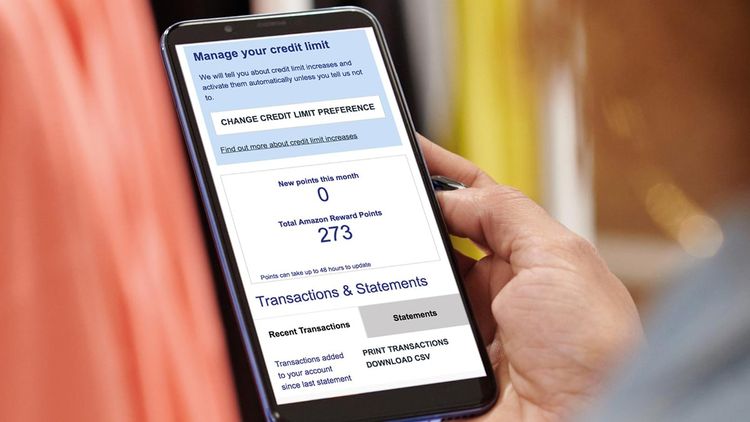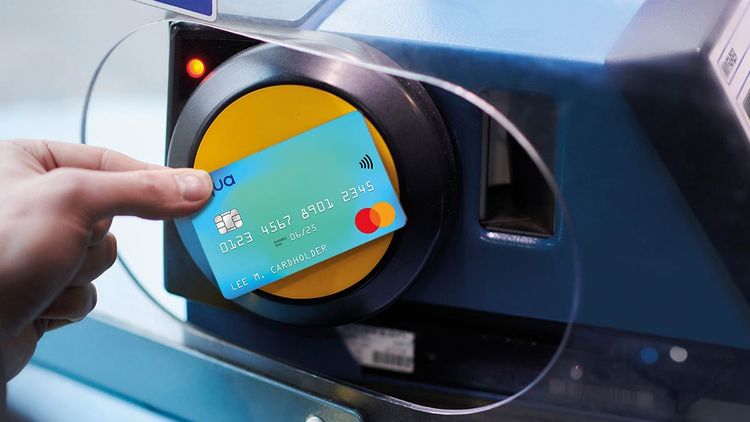In this article
How to pay off a credit card bill & should you overpay?
Confused about credit card payments? Find out how to clear your card's bill effectively, if overpaying is worthwhile, and steps to keep your balance in check.

Credit card bills can often feel confusing, especially if you’re new to borrowing and don’t understand how credit cards work. But knowing how and when to pay off your balance is key to staying on top of your debt.
You can pay off a credit card balance using funds from another account, often via direct debit, in-app, or over the phone. You’ll also have a choice of how much you want to pay, from a minimum payment to the whole amount.
In this guide, we’ll cover how long you have to pay off a credit card, details on every kind of repayment method, as well as guidance on what happens if you accidentally overpay what you owe.
How long do you have to pay off your credit card?
How long you have to pay off a credit card can vary between lenders. But in most cases, you’ll have a 25- to 30-day grace period between the statement date and payment due date.
As tempting as it might be to partially pay off your balance, it can potentially lead to paying more interest and accumulating more debt. For that reason, it’s always best to clear your balance wherever financially possible.
Should you pay your credit card off early?
There are a range of benefits to clearing your credit card balance before the due date. Not only does it reduce interest, but it also lowers your credit utilisation ratio and protects your credit score.
Adopting an early repayment behaviour can also help with budgeting by offering a clearer view of available funds once your debt is cleared. You might also have money left over to save for a rainy day.
Despite some myths out there, paying off your balance before the due date doesn’t harm your credit accounts. In fact, it goes a long way to protect your credit score by demonstrating to lenders you’re responsible with credit.
Whether you decide to pay off your balance early or on the due date, the priority is to pay on time. By making a late payment (or not making a payment at all) you’ll likely incur more interest as well as late fees.
You should also avoid the habit of making minimum payments every month. By doing so, you’ll accumulate more interest and potentially find it harder to get out of debt.
How to pay off your credit card bill
There are multiple ways to pay off your credit card bill which you can switch between to suit your lifestyle and financial situation. Here are some of the most popular methods.
Direct debit
Setting up a direct debit from your current account means payments are automated which limits the risk of interest and additional credit card fees. Depending on your preference, you can choose to pay the full, minimum, or set amount – whatever works best with your financial situation.
Online banking
Paying a credit card balance via online banking gives you the convenience and flexibility to pay off what you owe from anywhere with a secure internet connection. From your online account, you might also have the option of setting up automatic payments to avoid late fees.
Phone or in-person payments
Although paying by phone or in-person is less common, they’re still an option with many lenders. It might also be a preferred backup option for those who typically pay online but have connection issues.
With whichever option you choose, it’s a smart move to pay beyond the minimum payment. Although it may offer temporary convenience, paying off the smallest amount possible often leads to incurring more interest and greater amounts of debt. It can also negatively impact your credit score.
What happens if you overpay your credit card?
An overpayment is where you pay more than required to clear your credit card balance, often caused by a manual payment followed up by a forgotten automatic payment. It can also be caused by rounding up a payment amount that exceeds your balance.
In both scenarios, you’ll be left with a negative balance (otherwise known as a credit balance) which can either be applied to future purchases or refunded to you.
As annoying as an overpayment might be, having a surplus amount on your credit card won’t have a negative impact on your credit history or credit score. It simply means you have funds tied up until you make a purchase on your credit card or request a refund.
To limit the risk of making overpayments, you could set up account alerts to stay on top of what you owe. Or, alternatively, you could set auto payments to a minimum amount which are topped up with a monthly manual payment. Whatever works best for you.
What if you can’t pay your credit card payment on time?
Not making credit card payments on time leads to a range of consequences that could make it harder to get out of debt. Not only could you incur more interest and late payment fees, but you might also lose any promotional rates attached to your account.
Failing to make payments can also impact your credit score and leave a mark on your credit file which can make it harder to secure future loans. For that reason, you should avoid spending beyond your means to keep your monthly repayment amounts manageable.
If you’re struggling with your finances, you should contact your provider immediately to explain your situation. It’ll give you a clear view on your options which might include a payment holiday or setting up a manageable repayment plan.
For further help with your finances, you could also contact non-profit organisations, such as StepChange and the National Debtline, who can offer free independent advice to support your personal circumstances.
There are multiple ways to pay off your credit card balance, from direct debits and online transactions to settling up over the phone or in-branch. With whichever method you choose, it’s important to regularly check your balance to avoid overpayments.
With an Aqua credit card, you’ll have all the support you need to avoid overpayments and stay in control of your finances with access to a range of tools and automatic payment reminders.
Representative 39.9% APR (variable) on Aqua Classic
Failure to make payments on time or to stay within your credit limit means that you will pay additional charges and may make obtaining credit in the future more expensive and difficult.
Contributors


You might also like
Slide 1 of 3
Reducing credit card debt
Finding it difficult to clear your card debt? Discover some quick ways that you can start shifting your balance and...

How to budget effectively
Find out how to keep on top of your finances and become a budgeting pro.

How credit card payments work
Learn how credit card payments work, how and why credit card charges are applied and how to manage payments.
The smart way to build better credit
Aqua is the credit card that gives you the power to improve your credit score
